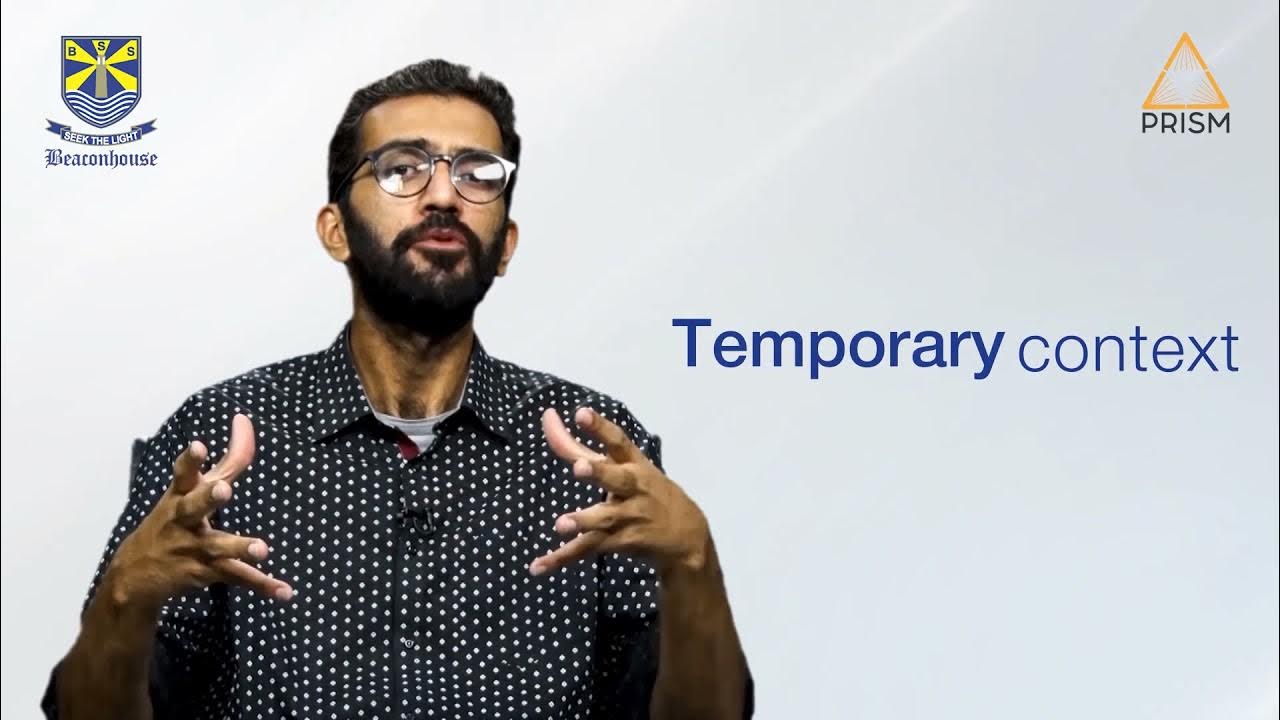Proactive vs Reactive | Be Proactive
Summary
TLDRThis script explores the differences between reactive and proactive attitudes, emphasizing the importance of continuous learning, seeking improvement, and embracing change for personal growth. Proactive individuals are portrayed as organized, value-driven, and future-oriented, in contrast to reactive individuals who tend to blame, feel overwhelmed, and live in the moment. The speaker provides strategies for becoming more proactive, such as anticipating problems, planning daily, setting clear goals, and surrounding oneself with like-minded people.
Takeaways
- 📚 Proactive individuals prioritize continuous learning and skill development, while reactive people often feel they know enough and don't see the value in further education.
- 🛠 At work, proactive people look for opportunities for improvement and are more likely to be promoted, whereas reactive individuals simply follow orders and can remain stagnant in their roles.
- 🔄 Proactive individuals embrace change as a sign of forward movement, in contrast to reactive people who prefer routine and find change uncomfortable.
- 🚒 Reactive people are often unprepared and deal with situations as they arise, which can lead to inefficiency and feeling overwhelmed, likened to 'firefighters'.
- 📝 Proactive people are organized and plan for the future, avoiding the pitfalls of last-minute reactions and wasted time on unproductive activities.
- 🤔 Proactive people don't blame external factors for their failures but instead accept responsibility and learn from their experiences.
- 🏆 Proactive behavior stems from conscious choices based on values, rather than reactive behavior which is often driven by immediate feelings and conditions.
- 🌟 Proactive individuals stay focused on their values, even when influenced by external stimuli, unlike reactive people who may build their lives around the emotions of others.
- 🛑 To become more proactive, one should predict and prevent issues by addressing problems as they arise rather than avoiding them in hope they will disappear.
- 🗓 Proactive people plan their daily agendas and prioritize their tasks, ensuring they stay focused and accomplish their to-do list each day.
- 🎯 Having clear goals and a vision helps proactive individuals stay on track, with the understanding that daily tasks are steps towards achieving larger objectives.
- 🤝 Surrounding oneself with like-minded, passionate individuals and seeking advice from those who have achieved similar goals can help refine one's vision and maintain motivation.
Outlines

This section is available to paid users only. Please upgrade to access this part.
Upgrade NowMindmap

This section is available to paid users only. Please upgrade to access this part.
Upgrade NowKeywords

This section is available to paid users only. Please upgrade to access this part.
Upgrade NowHighlights

This section is available to paid users only. Please upgrade to access this part.
Upgrade NowTranscripts

This section is available to paid users only. Please upgrade to access this part.
Upgrade NowBrowse More Related Video

Eduardo Briceño: How to get better at the things you care about | TED

Cara Keluar Dari Mindset Pecundang

Sanskari Girl Falls In Love With Modern Guy | Apoorva Arora, Parikshit Joshi & Nupur Nagpal | RVCJ

x10 rồi x10 rồi x10: Đúc kết từ khóa sau 8 năm (Bản raw gốc) Ultimate Trainer

15 Minutes to a Growth Mindset: Insights from a Leading Keynote Speaker on Embracing Change

BSS Part 02
5.0 / 5 (0 votes)